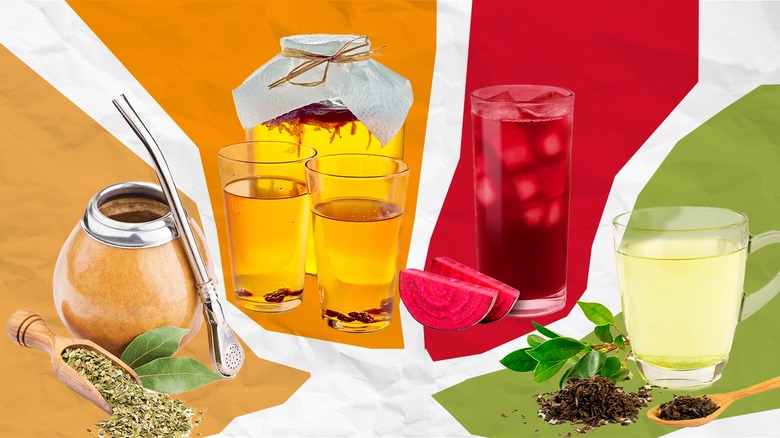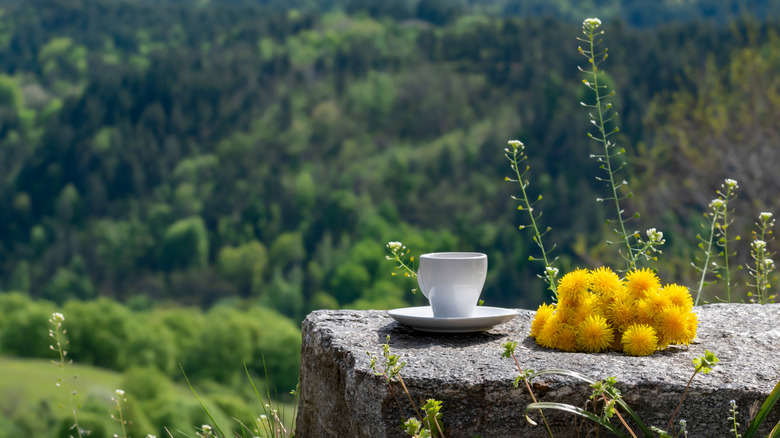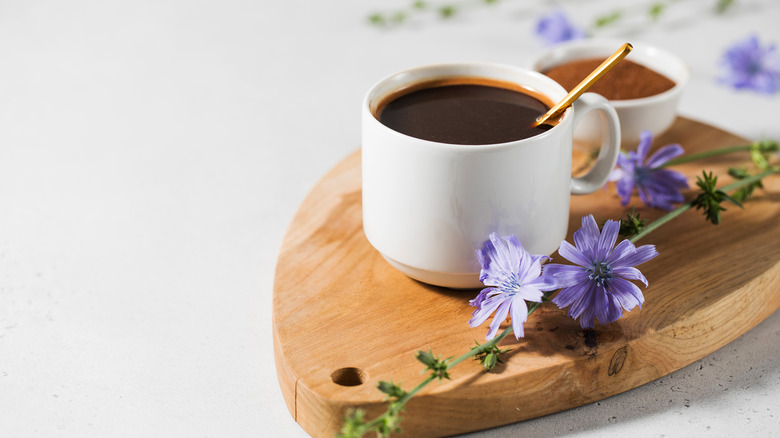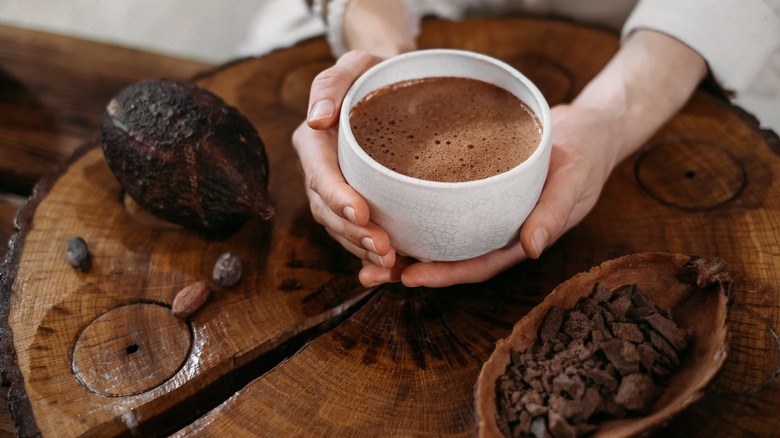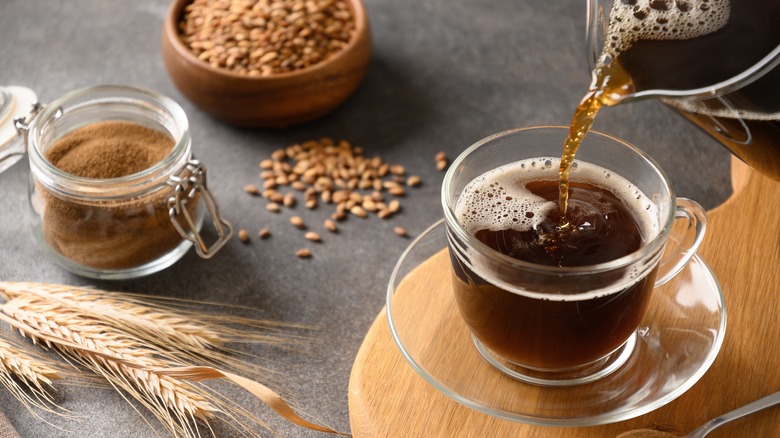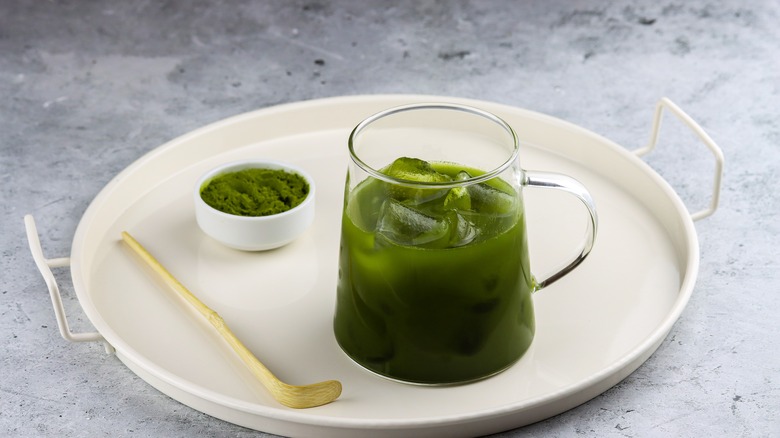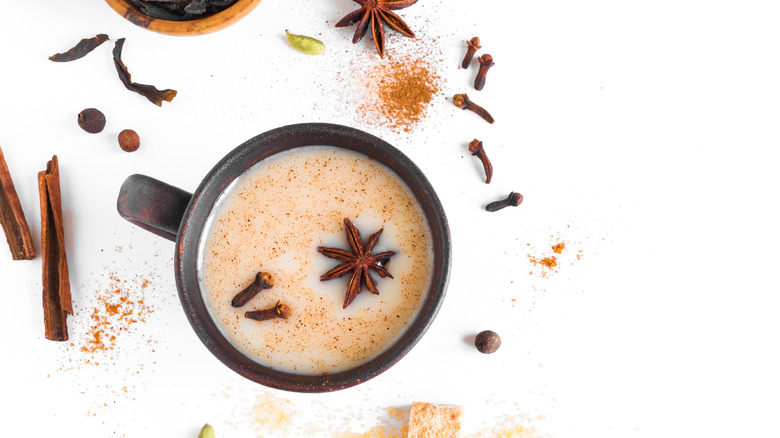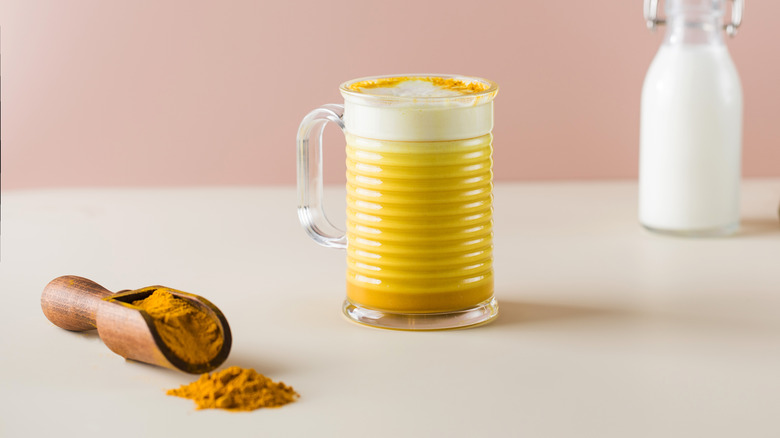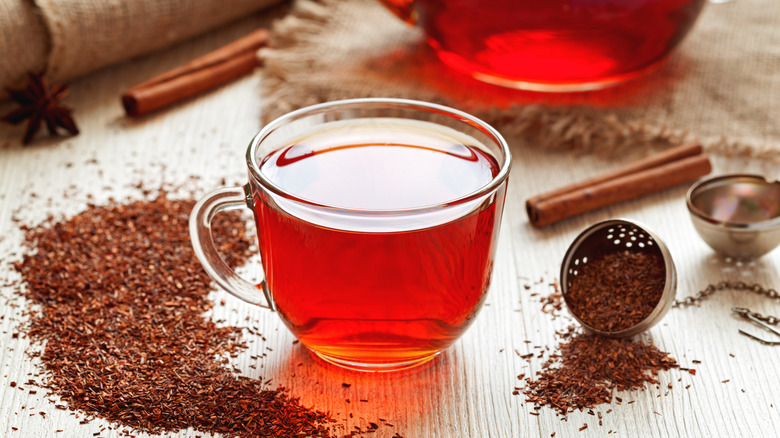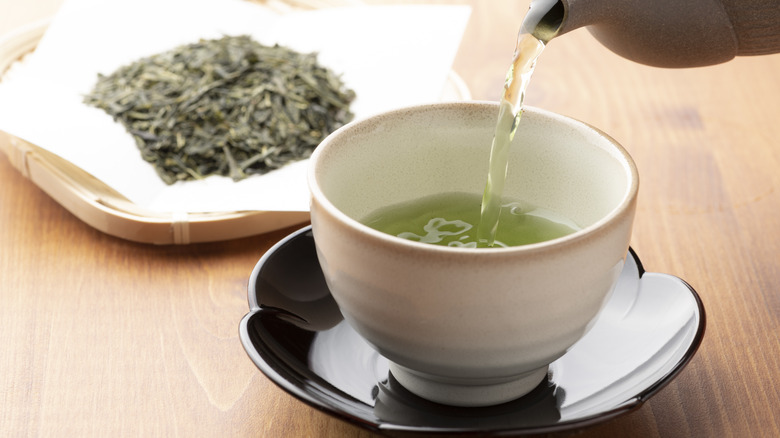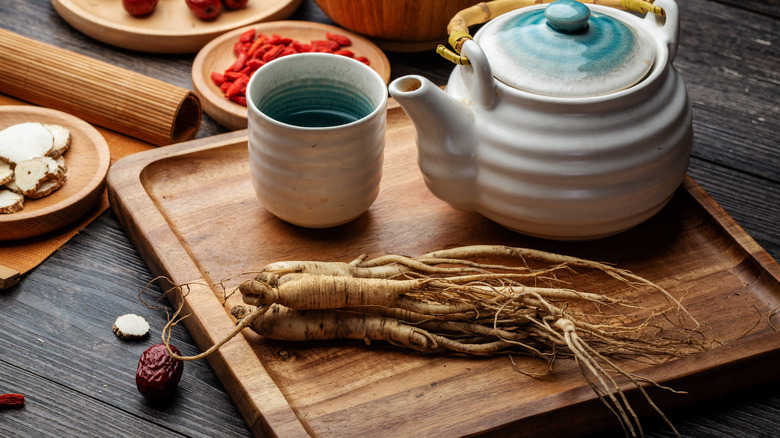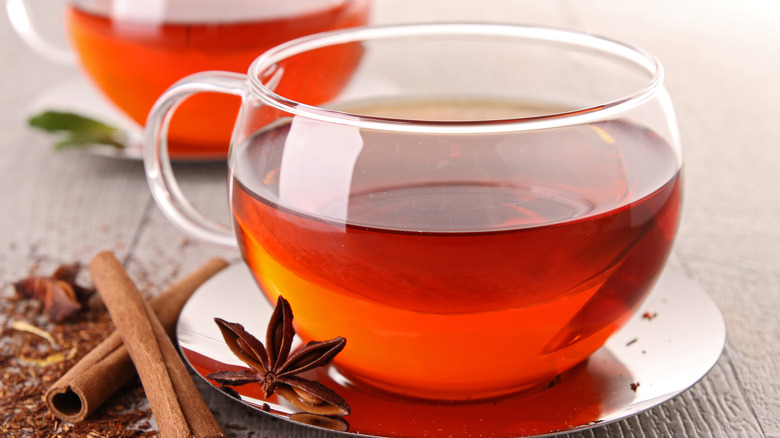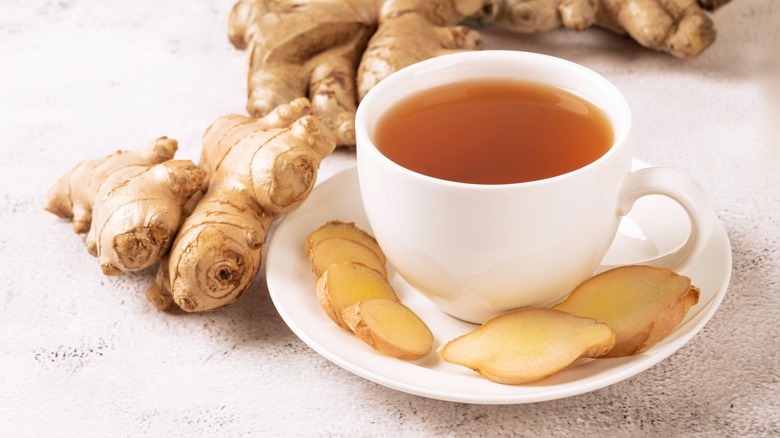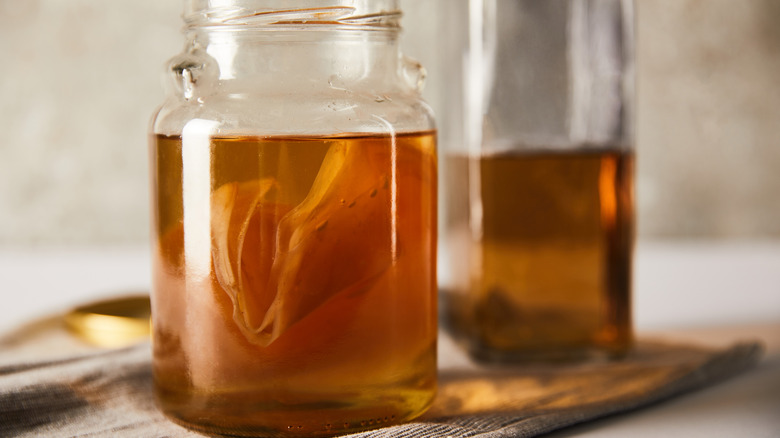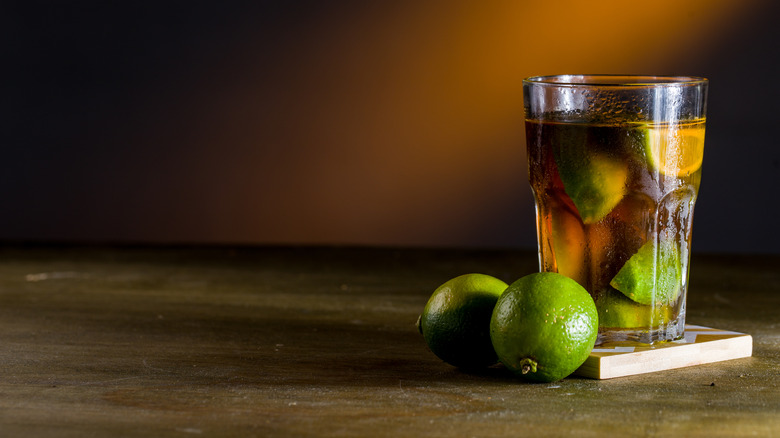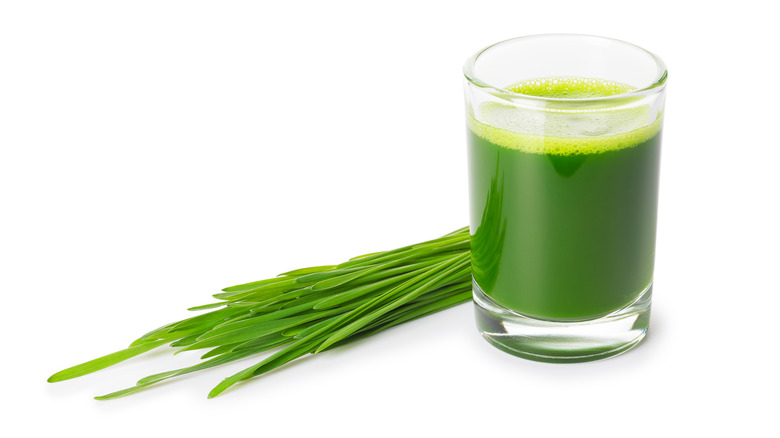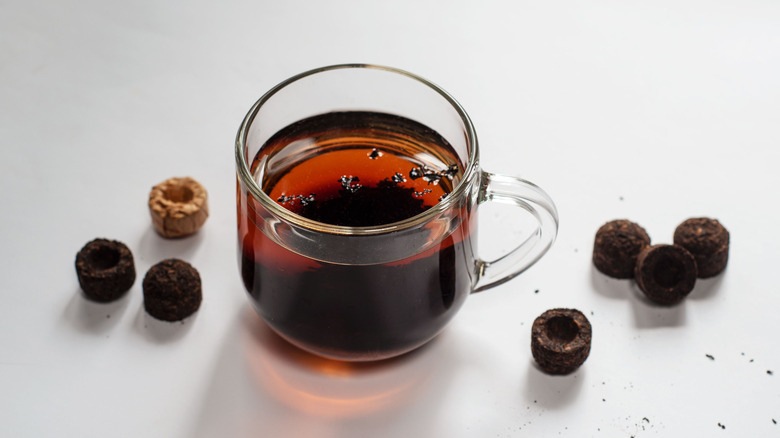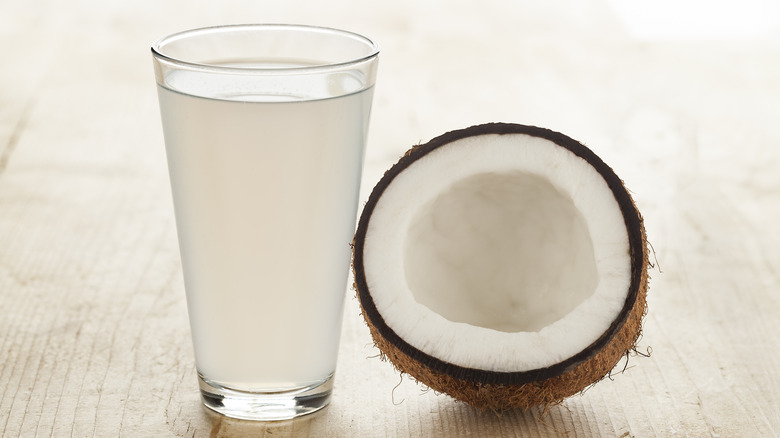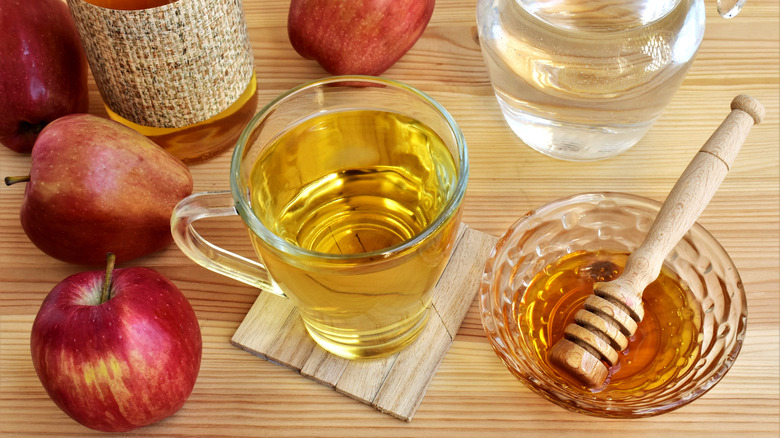20 Coffee Substitutes To Start Your Day
Coffee has long been the go-to beverage for millions worldwide, providing a quick energy boost and a deliciously robust flavor. However, there are times when coffee just won't cut it, whether it's for health reasons, to reduce caffeine intake, or simply because you're tired of the same old drink. That's where coffee substitutes come in.
There are several beverages that can be enjoyed in place of coffee. While they may not provide the same level of caffeine, they can still offer various benefits, from boosting energy levels to improving overall health. And with the increasing popularity of alternative diets, there's never been a better time to explore the world of coffee substitutes. When choosing a coffee substitute, the taste is undoubtedly an essential factor. Energy improvement is also a crucial consideration. So, whether you're looking for a caffeine-free alternative to your morning cup of joe or want to try something new, there's a coffee substitute out there for everyone. Check out some popular options.
1. Dandelion coffee
Dandelion coffee is a popular alternative to traditional coffee made from roasted dandelion roots. It may sound like something you'd find in a fairy tale, but it's a delicious and healthy alternative to your morning coffee. The beverage has a slightly bitter taste and a deep, rich flavor similar to coffee. Preparing dandelion coffee is a breeze, too. Just brew it up using your favorite method (French press or pour-over), and enjoy the slightly bitter taste that'll make your taste buds dance.
According to Healthline, benefits of dandelion coffee are that it is rich in antioxidants and has anti-inflammatory properties. This makes it an excellent choice for those looking to improve their health and well-being. Additionally, dandelion coffee is often used as a natural remedy for digestive issues, as it can help stimulate bile production and promote healthy liver function.
2. Chicory coffee
Chicory coffee has been delighting taste buds for centuries. This magical elixir is made by roasting and grinding the root of the chicory plant and then steeping it in hot water. But what makes chicory coffee so unique? First, it's excellent for those looking to cut down on caffeine. While coffee beans contain caffeine, chicory roots do not. So, if you're looking for a morning pick-me-up without the jitters, chicory coffee is the way to go.
But don't let the lack of caffeine fool you — chicory coffee still packs a punch in the flavor department. Its taste is rich, bold, and nutty, with a slightly bitter finish that coffee fans will appreciate. In fact, it has a taste so similar to coffee that it's often used as a coffee extender, meaning it can be mixed with coffee to stretch out your supply and add an extra depth of flavor.
3. Cacao (brewed, not cocoa)
If you're a coffee lover who wants to try something that's both delicious and healthy, look no further than brewed cacao. Made from the same plant as chocolate, brewed cacao is a great coffee substitute that's bursting with natural goodness.
One of the best things about brewed cacao is that it has a similar taste profile to coffee but without energy crashes. In addition, although the natural caffeine content in cacao is higher than that of coffee, you will need less cacao than coffee for brewing a beverage. This makes brewed cacao an excellent option for those looking for a gentler pick-me-up in the morning. Just mix cacao powder with water, and you've got a delicious and nutritious beverage that'll satisfy your cravings without any of the adverse side effects of coffee. You can even experiment with different flavors and spices to customize your brew to your liking.
4. Orzo coffee (barley)
Orzo coffee is an Italian beverage made from ground barley which is prepared and tastes very similar to coffee. It's a delicious, caffeine-free coffee substitute that's been popular in Italy for centuries. Not only is orzo coffee a great alternative to traditional coffee for those sensitive to caffeine, but it's also rich in vitamins and minerals. Per Healthline, barley is a good fiber, iron, and potassium source, making orzo coffee a nutritious choice for your morning brew.
While orzo coffee may not have the same caffeine kick as traditional coffee, it has a similar taste profile and aroma. Think of it as a warm, comforting hug in a cup. And, if you're feeling creative, you can even add a splash of milk or honey to customize your drink. In Italy, orzo coffee is typically prepared using a stovetop moka pot or infused in boiling water. The grains are roasted, ground, and brewed just like coffee beans.
5. Matcha green tea
For many people, coffee is the fuel that keeps them going throughout the day. However, matcha green tea is an excellent option for those looking for a healthier alternative or simply wanting to mix things up. One of the most significant advantages of matcha is that it provides sustained energy throughout the day, unlike coffee, which will make your energy level drop after an initial spike. This is because matcha contains a unique blend of caffeine and L-theanine, an amino acid that promotes relaxation and reduces stress (via WebMD). Additionally, matcha is packed with antioxidants, which help protect the body against damage from free radicals and support overall health.
But what about the taste? Matcha offers a rich, earthy flavor that many find appealing. Plus, with a little bit of experimentation and the right preparation techniques, matcha can be made into a variety of delicious drinks, from lattes to smoothies to iced teas. When choosing the right matcha, opting for ceremonial-grade matcha, the highest quality and most nutrient-dense form of tea, is essential.
6. Chai
Every morning, you have the same coffee routine. But, if you've grown bored with it, maybe it's time to spice things up with chai. Not only is chai delicious, but it's also packed with health benefits.
There's a lot to know about chai, but one of the main reasons chai is a great coffee substitute is its caffeine level. Chai contains a small amount of caffeine, balanced by other natural compounds, such as theanine, which can help you feel more relaxed and focused. Chai and coffee share similar flavor profiles, too. Both are rich and bold, with hints of bitterness and sweetness. However, chai takes things to the next level with its aromatic blend of spices, such as cinnamon, cardamom, and ginger. This unique flavor profile can be enjoyed independently or paired with milk and honey for a tasty and indulgent treat.
7. Black tea
Black tea has a similar taste profile to coffee but has a lower caffeine level, so it's an excellent choice for those trying to reduce caffeine intake. One of the great things about black tea is its versatility. You can enjoy it hot or iced, with or without milk, and it pairs well with various foods.
Like coffee, the temperature you brew your black tea is crucial to achieving the perfect cup. The best temperature for brewing black tea is around 212 degrees Fahrenheit, or the boiling point. This ensures the tea leaves release their full flavor and aroma without becoming too bitter. So next time you need a caffeine boost, brew yourself a cup of black tea. It's a delicious and healthy alternative that will leave you feeling refreshed and energized.
8. Golden milk (turmeric latte)
Golden milk is a perfect choice for those who want to replace morning coffee with something that tastes great and fills your home with delightful aromas. Golden milk, also known as haldi doodh, is a traditional Indian drink that has gained popularity in the Western world. It's made by simmering milk with turmeric, ginger, cinnamon, black pepper, and other spices.
Golden milk can certainly replace your morning coffee. While it doesn't contain caffeine, its spices provide a natural energy boost that can help you kickstart your day. To make golden milk, start by heating milk (or a dairy-free alternative) in a saucepan over low heat. Add in the spices and sweetener of your choice, and let it simmer for a few minutes until fragrant. Golden milk has a slightly sweet and spicy flavor reminiscent of chai tea. It's the perfect cozy drink to sip on a chilly morning or to enjoy as an afternoon pick-me-up.
9. Rooibos tea
Rooibos tea is the perfect coffee alternative that won't keep you up all night. This unique South African herbal tea is caffeine-free and has many health benefits. Per Healthline, rooibos tea is high in antioxidants, which can help fight inflammation and boost your immune system. It's also been linked to improved heart health and better digestion. So not only will you be avoiding caffeine, but you'll also be doing your body a favor by sipping rooibos tea.
Rooibos tea has a similar flavor to coffee with nutty and earthy notes, making it a satisfying substitute for your morning brew. Drink it hot or cold, with or without milk and sweetener. And if you're feeling adventurous, add some spices like cinnamon or ginger for a cozy, caffeine-free latte. You can find rooibos at most grocery stores and online retailers.
10. Green tea
Green tea contains caffeine just like coffee. However, green tea's caffeine content is lower than coffee's, meaning you'll get the energy boost without the unpleasant side effects.
The benefits of green tea don't stop at caffeine, either. Green tea is a superfood, a powerhouse of antioxidants, which can help reduce inflammation, fight free radicals, and even improve brain function. In addition, according to the National Library of Medicine, it contains L-theanine, an amino acid that promotes relaxation and reduces stress, making it the perfect choice for a calming morning beverage. The taste profile is certainly not identical, but much like coffee, green tea has a slightly bitter, earthy flavor that can be enhanced with sweetener and milk.
11. Ginseng tea
Ginseng tea boosts energy, has many health benefits, and has a unique flavor profile that can satisfy even the most die-hard coffee drinkers. One of the main reasons ginseng tea is a good coffee substitute is because it contains natural compounds called ginsenosides, which have been shown to improve cognitive function and increase energy levels (via WebMD).
Ginseng tea has been used for centuries in traditional Chinese medicine as a natural remedy for various ailments, including reducing stress, boosting the immune system, and improving overall well-being. In addition to its many health benefits, ginseng tea mirrors coffee's bitter flavor, at least to some degree. Many people enjoy it plain, but it can also be sweetened with honey or agave for a more indulgent taste.
12. Cinnamon tea
Cinnamon tea is a flavorful and aromatic beverage, which is also packed with health benefits. It has a similar taste profile, with rich and earthy notes. Plus, it provides a warming and comforting feeling that can help you kickstart your day. However, unlike coffee, cinnamon tea has zero caffeine content, making it ideal for those looking to reduce their caffeine intake.
Cinnamon tea has been shown to have several health benefits (via Healthline). For example, it can help regulate blood sugar levels, lower cholesterol, and reduce inflammation. Cinnamon is also high in antioxidants, which can help prevent cell damage and reduce the risk of chronic diseases. Cinnamon has a long usage history, with the ancient Egyptians and Romans valuing it for its medicinal properties.
13. Ginger tea
Ginger tea is a flavorful alternative to coffee and boasts numerous health benefits (via Herbal Medicine). Unlike coffee, which can have a high caffeine content and make you anxious and restless, ginger tea contains very little caffeine. This means you can enjoy it anytime without worrying about interrupting your sleep patterns. In addition to its low caffeine content, ginger tea has been shown to aid digestion, reduce inflammation, and boost the immune system.
When it comes to taste, ginger tea is surprisingly similar to coffee. It has a bold flavor with subtle notes of sweetness. Plus, the warmth of the tea can provide the same cozy and comforting feeling that coffee drinkers love. Make sure you steep your ginger tea for at least 10 minutes to get that great spicy flavor.
14. Kombucha
Kombucha is a fermented tea drink that has been around for centuries and has recently boomed in popularity in the Western world. And for a good reason — drinking kombucha has many health benefits.
Kombucha has a unique, slightly tangy taste that can be sweet and sour. It's made by fermenting tea with a symbiotic culture of bacteria and yeast, known as a SCOBY, which gives the drink its distinctive flavor and fizziness. It's a refreshing change from the bitter taste of coffee and much lower in caffeine. But kombucha is valued chiefly due to how it impacts health. According to Healthline, not only is it packed with probiotics, which can help improve digestion and boost the immune system, but it also contains antioxidants that can protect against oxidative stress and inflammation.
15. Yerba mate
Yerba mate is another drink that makes a great coffee substitute. It contains plenty of caffeine, so you'll still get that energizing kick in the morning. However, yerba mate also contains theophylline, providing a more sustained energy boost. Yerba mate is also high in antioxidants, which can help to fight inflammation and improve overall health (per Healthline).
In terms of flavor, yerba mate has a distinct and earthy taste that some compare to green tea. Mix it with flavors like honey or mint to create a unique and delicious drink if you're feeling adventurous. Yerba mate also has a fascinating history. This drink has been enjoyed for centuries in South America and was initially consumed by indigenous tribes who believed it had medicinal properties, eventually becoming a cultural staple.
16. Lemon water
Lemon water is a refreshing and healthy alternative to your morning coffee. Not only is lemon water hydrating and packed with vitamin C, but it can also aid in weight loss, boost your metabolism, and aid digestion (via Healthline). Plus, it's a low-calorie option, so you won't have to worry about undoing all your hard work at the gym.
Regarding flavor, lemon water may not have the rich, bold taste of coffee, but it has a zesty kick that will wake up your taste buds and refresh you. And if you're feeling adventurous, add some honey or ginger to your lemon water for an extra flavor boost. Drinking more water is rarely a bad thing, and the extra boost from lemon is worth giving this a try.
17. Wheatgrass juice
A vibrant green juice that is quickly becoming a popular coffee substitute, wheatgrass juice provides a natural energy boost without the side effects of coffee. According to Medical News Today, it contains a high chlorophyll concentration, which helps oxygenate the blood and increase energy levels. Additionally, wheatgrass juice is loaded with vitamins and minerals, including vitamin A, vitamin C, iron, and calcium, making it an excellent choice for those looking to boost their overall health.
Wheatgrass juice has a unique flavor that may take some getting used to. Some describe it as "earthy" or "grassy," while others find it refreshing and sweet. One thing is for sure — it's not a traditional coffee flavor. However, the drink has its fans, so it's clear that certain people enjoy the grassy aroma.
18. Pu'er tea
Pu'er tea is a Chinese tea known for its rich flavor, which makes it an excellent alternative to the bold taste of coffee. There's a lot to know about Pu'er tea, as it has great cultural significance and many health benefits. For example, it has been shown to lower cholesterol levels, aid digestion, and even help with weight loss. In addition, Pu'er tea contains compounds called catechins and theanine, known to have antioxidant and anti-inflammatory properties.
Pu'er tea has a long usage history in China, with some of the most prized tea trees aged between 200 and 600 years. It was traditionally used for medicinal purposes and considered a luxury item. Today, Pu'er tea can be found in specialty tea shops and online.
19. Coconut water
Coconut water is an excellent alternative to coffee, providing natural hydration and boosting energy levels. According to Medical News Today, it contains electrolytes such as potassium, magnesium, and calcium, which help to replenish the body after a workout or a long day. Coconut water is also low in calories and has a natural sweetness, making it a healthy choice for those looking to reduce their sugar intake.
In addition to its hydration benefits, coconut water has been shown to have numerous health benefits. It can help to lower blood pressure, improve digestion, and even boost the immune system. This is because coconut water contains antioxidants with anti-inflammatory properties. However, drinking coconut water daily poses some health risks due to its high potassium content, so be careful how often you add it to your diet.
20. Apple cider vinegar and honey drink
The apple cider vinegar and honey drink is an excellent substitute for coffee, however peculiar this may sound. This tangy and sweet drink has an interesting taste, brings an energy boost, and can better your health in several ways (via Healthline).
Apple cider vinegar and honey are both known for their health-promoting properties. Combined, they create a potent drink that can help boost the immune system, aid digestion, help with allergies and cold symptoms, improve heart health, and even promote weight loss. The beverage, which acts as a tonic for your body, is also low in calories and sugar, making it a healthy choice for those looking to reduce their sugar intake. The apple cider vinegar provides a tangy and slightly sour taste, which certainly isn't for everyone, but the honey adds natural sweetness that makes it far more palatable.
